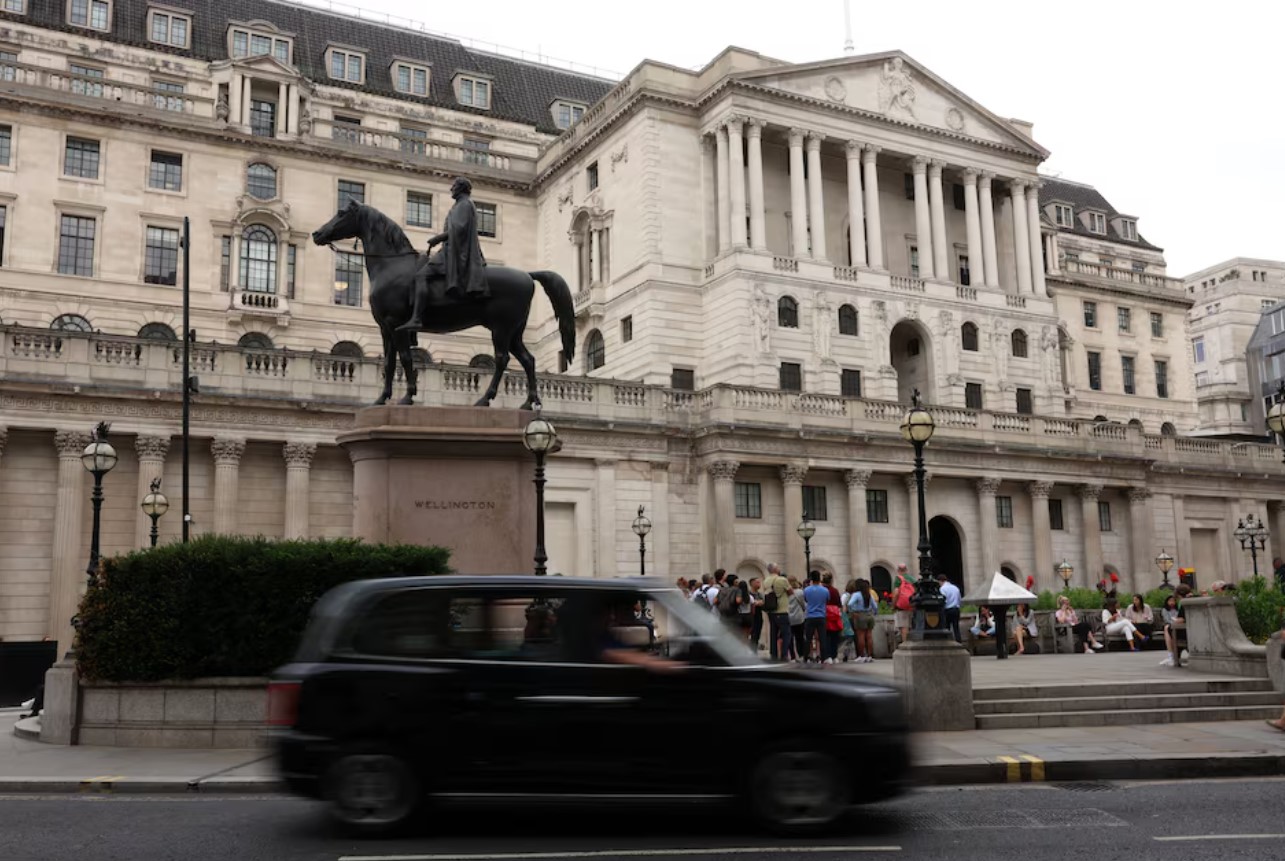Britain’s jobs market has lost a little more steam, official data showed on Tuesday, potentially easing worries at the Bank of England about persistent inflation pressures.
The Office for National Statistics figures showed the number of workers on firms’ payrolls falling for a seventh month in a row and broader wage growth edging down. But there was also a hint that employers might be ready for some more hiring.
The BoE is expected to keep interest rates on hold this week, having cut them in August. Many of its policymakers remain wary about inflation heat in the jobs market.
Tuesday’s figures showed the number of payrolled employees fell by a provisional 8,000 in August. July’s drop was revised to 6,000 from a previously reported reduction of 8,000.
TAX INCREASE, CONCERNS OF FURTHER RISES WEIGH ON STAFFING
Employers have blamed a tax increase ordered by finance minister Rachel Reeves for their cautious stance on staffing and many are worried about a possible further hit in her next budget due in November.
“Some businesses may be choosing to delay recruitment decisions until there is more clarity on potential tax changes,” said Yael Selfin, chief economist at KPMG UK.
Basic wage growth in the private sector – watched closely by the BoE – slowed to 4.7 per cent between May and July from 4.8 per cent in the three months to June.
Overall average weekly earnings, excluding bonuses, grew by 4.8 per cent, weaker than the previous reading of 5.0 per cent but still above the roughly 3 per cent level seen as consistent with the BoE’s 2 per cent inflation target.
“Today’s data release won’t do much to alleviate the Bank of England’s concerns over the upside risks to inflation,” said Ashley Webb, UK economist at Capital Economics.
Investors do not expect another BoE rate cut for at least six months.
There were some signs in the ONS data of an improvement in employers’ appetite for hiring.
The number of job vacancies in the three months to August rose to 728,000 after touching its lowest in the previous month’s release since early 2021.
It was the first increase in the number of vacancies from one month’s job report to the next since the three months to February last year, the ONS said.
Sanjay Raja, Deutsche Bank’s chief UK economist, said a wave of staffing cuts by employers was now probably complete although budget uncertainty was likely to weigh on hiring, and pay settlements would edge lower over the rest of the year.
“This should give some comfort that the path ahead may be less bumpy than perhaps some of the survey data suggests,” Raja said.
Britain’s unemployment rate in the three months to July held at 4.7 per cent, its highest since the second quarter of 2021, although that figure is based on a survey of households that the ONS has said is not currently reliable.
Surveys published last week showed that employers had offered the lowest pay settlements in more than three-and-a-half years in July and hiring had continued to slow – albeit by less than in previous months.






Click here to change your cookie preferences